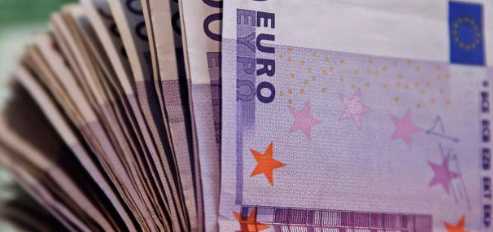The European Union has excluded some of the world’s most powerful investment banks with past involvement in breaches of anti-trust rules from syndicated debt sales in its €800 billion recovery fund, the EU executive said.
“The Commission will be undertaking a careful assessment of whether the primary dealers found guilty of breaching anti-trust rules have taken necessary remedial measures to terminate these practices and are ready to undertake to take steps to avoid their recurrence,” the European Commission said in a statement to Reuters.
“Pending the completion of this assessment, these institutions will be admitted to the primary dealer network but will not be invited to tender for individual syndicated transactions,” it added.
The Commission did not name any banks, but a spokesperson for the Commission pointed to three cartel cases over the last three years which involved 10 major primary dealer banks.
The Commission fined banks including Bank of America, Credit Agricole, Natixis, Nomura, Natwest Markets (formerly RBS) and UniCredit for breaching antitrust rules by participating in bond cartels in two separate cases in April and May this year.
Deutsche Bank also participated in one of the cartels but was not fined as it revealed the cartel to the Commission.
Barclays, Citigroup, JPMorgan and Natwest were fined in 2019 for rigging the foreign exchange market.
The news on the banks being excluded came as the European Union on Tuesday raised €20 billion from the first bond backing its €800bn recovery fund amid very strong demand.
“The final order book was in excess of €142 billion, which meant that the bond has been over seven times oversubscribed,” said the Commission.
“The joint lead managers were BNP Paribas, DZ BANK, HSBC, IMI-Intesa Sanpaolo and Morgan Stanley. Co-leads were Danske Bank and Santander.”
The Commission added: “The European Commission has today, in its first NextGenerationEU transaction, raised a €20 billion via a ten-year bond due on 4 July 2031 to finance Europe’s recovery from the coronavirus crisis and its consequences.
“This is the largest-ever institutional bond issuance in Europe, the largest-ever institutional single tranche transaction and the largest amount the EU has raised in a single transaction.
“The bond has attracted a very strong interest by investors across Europe and the world, thanks to which the Commission has obtained very favourable pricing conditions, similarly to the repeatedly successful issuances under the SURE programme.”
European Commission President Ursula von der Leyen said: “Today is a truly historic day for our European Union.
“We successfully conducted the first funding operation for NextGenerationEU.
“As a strong Union, we are raising money at the markets together and investing in a common recovery from this crisis.
“It is an investment in our single market.
“And even more importantly, it is an investment in the future of Europe’s next generations as they face the challenges of digitisation and climate change.
“Money can now start flowing to help reshaping our continent, to build a greener, more digital and more resilient Europe.
“I will now visit every Member State, to see NextGenerationEU impact on the ground.”
Commissioner in charge of Budget and Administration, Johannes Hahn, said: ”Today, we have reached a key milestone in implementing NextGenerationEU.
“After laying all the foundation at record speed, we have today successfully conducted the first borrowing operation under the Recovery Plan.
“This is just a very first step of a long journey, bringing over €800 billion in current prices into the EU economy.
“NextGenerationEU has now become a reality and is set to drive our collective recovery from the pandemic, setting Europe on a green, digital and resilient path.”
By the end of 2021, the Commission expects to raise €80 billion in bonds, to be complemented by short-term EU-Bills, as per the funding plan published in June 2021.
